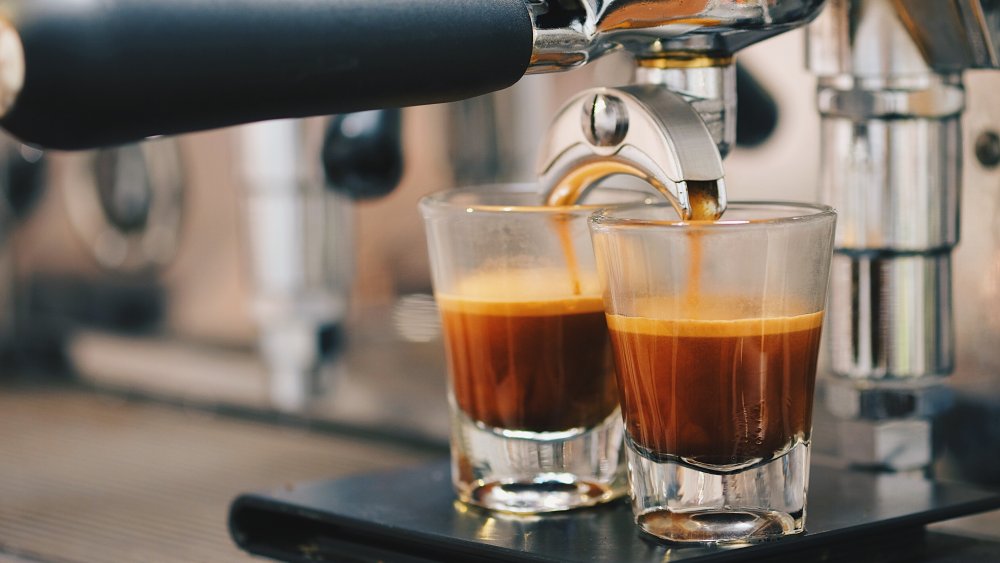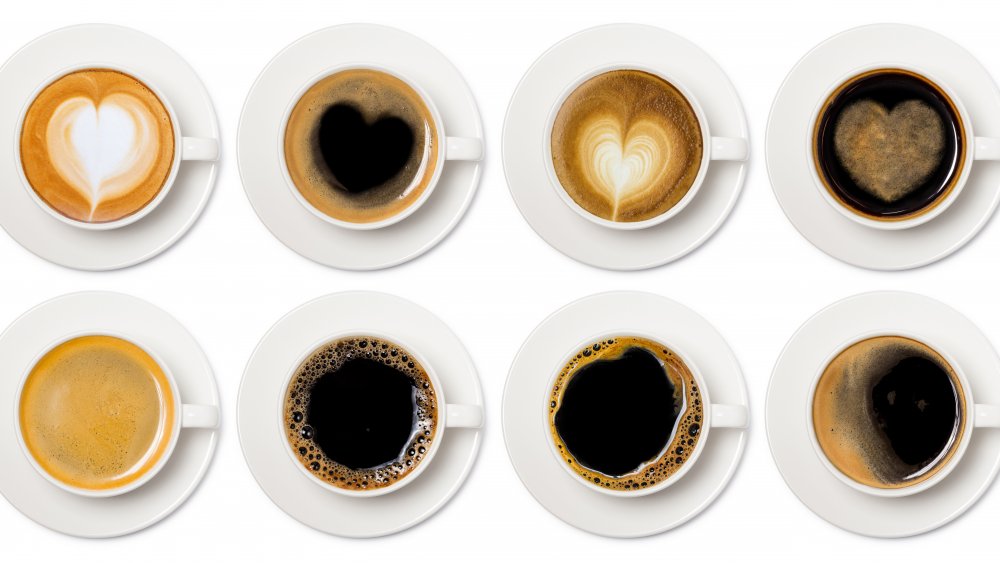Is It Bad To Drink Espresso Before Bed?
Any true coffee lover will appreciate an espresso, with only a touch of milk or no milk at all. And interestingly enough, beyond taste, it may just be because it's stronger than any other coffee style. "Even though espresso carries less caffeine than filter or other coffee methods, the concentration is much higher, so your body absorbs less caffeine but in a much shorter time than filter coffee — which is usually sipped for minutes," illy's master barista, Giorgio Milos, told Food & Wine. "Therefore, espresso's effect is stronger to our senses." But if espresso is the strongest coffee you can order, why do some people choose to have one (or two) after dark? Is it bad to drink espresso before bed?
According to a recent study by Florida Atlantic University and Harvard Medical School (via The Independent), having a coffee before bed isn't necessarily a bad thing. Researchers looked into the effects of nicotine, alcohol, and coffee on sleep and found that having a cigarette or wine within four hours of going to bed will cause sleep disruptions. Coffee, on the other hand, will not (yes, even the researchers were surprised).
Avoid a bedtime espresso if you're sensitive to caffeine
While sleep expert Dr. Neil Stanley agrees that drinking coffee before bed isn't always a bad idea, he points out that coffee affects people differently. "Some people are very sensitive to the effects of caffeine and for these people, it's important to avoid drinking beverages containing caffeine too close to bedtime — but there is no golden rule about this, just listen to your body," Dr. Stanley told The Independent. "For some people, the effects caused by caffeine are much lower, and [it] may not have any effects at all," he continued.
Another thing to be wary of it is the strength of the espresso. "If it is weak, it might not give you much of a buzz 20 minutes before bed, but if it is strong, that buzzy feeling will kick in harder," Matthew Robinson, food scientist and founder of The Culinary Exchange, told Food & Wine. "Bean type can also be a factor — some beans have more caffeine."

